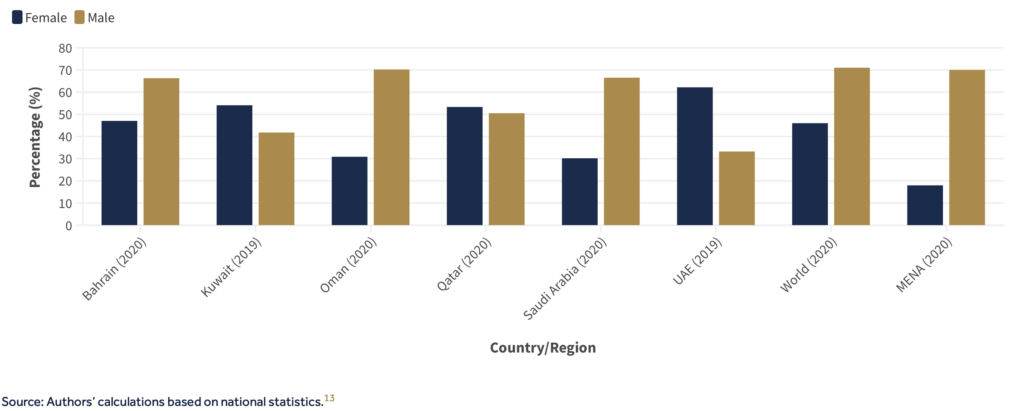
The GCC countries lead the Middle East and North Africa (MENA) region in terms of female employment among citizens.
Women nationals in the six countries of the Gulf Cooperation Council (GCC) have made remarkable progress in terms of educational attainment and labor force participation, said a new publication by the Middle East Council.
According to the researchers, the GCC countries lead the Middle East and North Africa (MENA) region in terms of female employment among citizens due to the work of women’s economic empowerment in the MENA region.
“While substantial gains have been achieved, more needs to be done,” wrote Nejla Ben Mimoune, Research Associate – Research and Nader S. Kabbani, Senior Fellow and Director of Research in their brief.
The GCC countries want to develop knowledge-based economies that are independent of oil and gas; therefore, they must utilise the full capacities of their respective national workforces, especially those of educated women.
“However, while female nationals are graduating from higher education institutions in greater numbers than their male counterparts, their contributions to the labor market remain lower, indicating an underutilisation of human capital. Indeed, many legal and social barriers to Gulf women’s full economic integration persist,” they added.
The researchers said that their analysis finds that gains in female employment were due to increases in educational attainment and an expansion of high-paying jobs in the public sector sustained through revenues from hydrocarbons.
Moreover, they added that continued improvements will require additional reforms, adding that ongoing economic diversification efforts may “erode gains” in female economic participation over time unless policies are adopted to sustain them.
That is due to the decline in public sector employment, which has played a vital role in enabling women nationals’ into the labor market.
